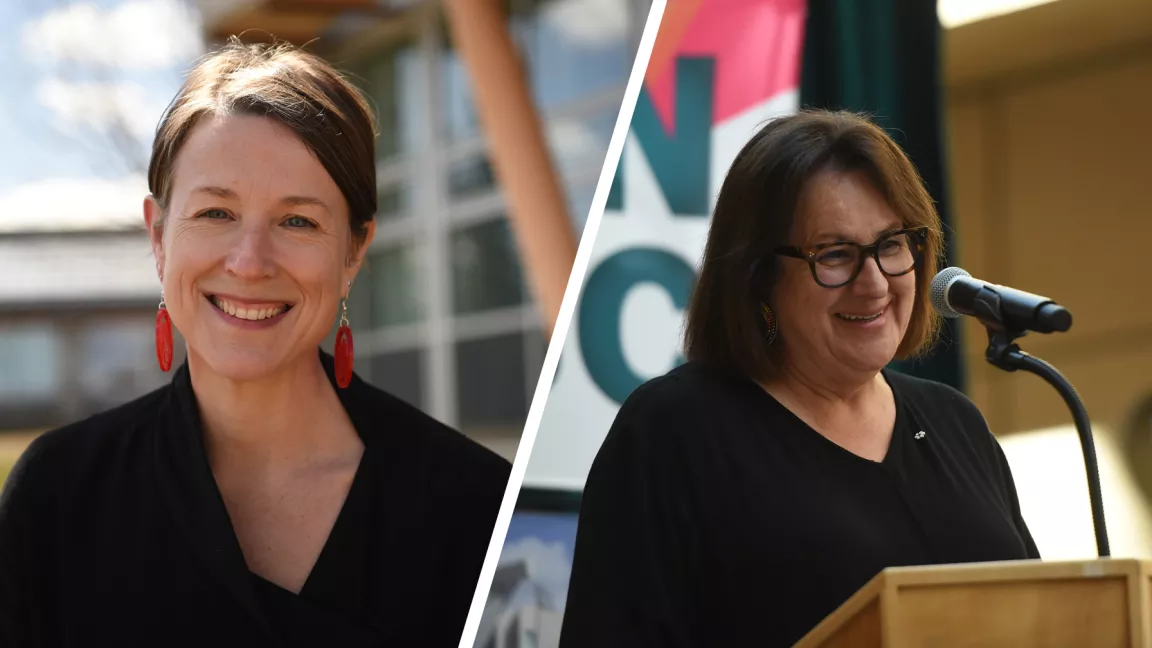Federal funding to support joint Indigenous cultural safety initiative in health systems
The National Collaborating Centre for Indigenous Health and the Health Arts Research Centre, both housed at UNBC, are receiving a $1-million Indigenous Services Canada grant for a two-year project focused on promoting cultural safety and Indigenous knowledge in health care.

The National Collaborating Centre for Indigenous Health (NCCIH) and the Health Arts Research Centre (HARC), both housed at UNBC, are receiving $1-million in new funds from Indigenous Services Canada for the Hearts-based Education and Anticolonial Learning (HEAL) health care project to support health care professionals to address anti-Indigenous racism, practise in anti-oppressive ways, and foster cultural humility.
Read Indigenous Services Canada's full news release
“We need to remember that achieving optimal health has always involved both the arts and sciences," said Dr. Sarah de Leeuw, Research Director, HARC; Canada Research Chair, Humanities and Health Inequities; and Professor, UBC Northern Medical Program. "We need to remember that transformational change, including much-needed anti-colonial change in health care, requires shifts in both feelings and thoughts. It’s about head and heart work. We’re excited to put arts and humanities to work in the service of cultural humility and anti-oppression.”
HEAL, a joint initiative between the NCCIH and HARC, is anchored in training and education focused on health care students and professionals to create better health outcomes for Indigenous people. The two-year project will promote cultural safety and recognize Indigenous knowledge and anti-colonial approaches in health service provision—central to achieving the goal of eliminating anti-Indigenous racism in health systems.
“The National Collaborating Centre for Indigenous Health is proud to be partnering in this absolutely critical work with and for Indigenous Peoples in Canada and beyond," said Dr. Margo Greenwood, Academic Leader, NCCIH. "The initiative takes a strength-based approach and creates a safe learning environment for all. The goal is to realize transformation and change in the health care system that supports everyone’s optimal health and well-being.”
"Addressing anti-Indigenous racism in our colonial systems is key to advancing conversations and actions around Truth and Reconciliation," said Dr. Geoffrey Payne, President and Vice-Chancellor, UNBC. "Access to health care in a system that is free of bias is fundamental to advancing the well-being of Indigenous people and communities. I'm excited to follow the work of all involved, and thank Dr. Greenwood and Dr. de Leeuw and our colleagues at the National Collaborating Centre for Indigenous Health and the Health Arts Research Centre for their ongoing commitment to this critical area of need."